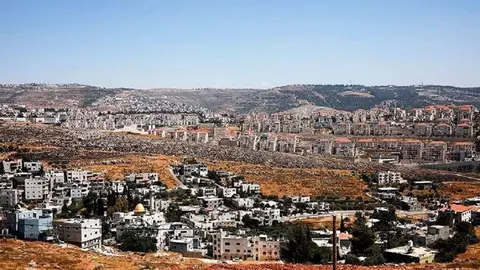From the "Lebanonisation" of the West Bank to the end of the People's Army

The state of permanent alert and alarm in which Israel lives has led to a sharp rise in the political and social temperature in recent weeks. The country is immersed in the fierce controversies that are widening the rift in its own society, while the security obsession and division caused by the growing dominance of the most extremist factions of the government coalition is accentuated.
The situation is becoming untenable in the West Bank, occupied Judea and Samaria since 1967, where attacks and operations by Israeli settlers on Palestinians have multiplied, as have attacks by Palestinians on Israeli citizens and military personnel. Defence sources point out that "enemies [of Israel] are flooding the region with resources and weapons that they are using to carry out shooting, vehicle-launching and stabbing attacks". They estimate that "terrorists are receiving general instructions from commanders in Iran, Gaza, Beirut and even Istanbul, with the aim of creating a 'Lebanisation' of Judea and Samaria", alluding to the systematic attacks on the neighbouring country and de facto protectorate of Syria for many decades.
While Israel's political forces are debating whether we are facing a third intifada or a terrorist wave that shows no signs of ending, the number of prestigious voices questioning the current policies of Benjamin Netanyahu's government has increased with the explosive statements made by Tamir Pardo, former head of the Mossad between 2011 and 2016. Interviewed by the Associated Press (AP), Pardo declared that "Israel is forcing an apartheid system on the West Bank".
Israel has always vehemently rejected this label, which compares it to South Africa's apartheid regime, in place between 1948 and 1994. The former Israeli spy chief resorts to simple examples: "In a territory where two people can be judged by two different legal systems, there is an apartheid state". He also alludes to the fact that citizens of Israel can get into a car and drive or go wherever they want, excluding the Gaza Strip. Palestinians," he says, "need Israeli permission to enter the country and often have to pass through military checkpoints inside the West Bank".
Asked by the AP if he thought the same when he was head of the Mossad, Pardo replies that even then he appreciated that the main problem that Benjamin Netanyahu, also then prime minister, saw for Israel was the Palestinians, "even more than Iran's nuclear programme. He also disapproves of the project encouraged by the more radical wing of the government to double the Jewish population in the West Bank, currently half a million settlers. Israel considers this occupied region to be "a disputed territory", to which Tamir Pardo retorts that "if Israel does not establish borders between itself and the Palestinians, the very existence of the Jewish state will be endangered".
Tamir Pardo had already last year become a harsh critic of Netanyahu for his initiative to reshape the judicial system, "implementing measures that will lead Israel to become a dictatorship".
Adding to the tension has been the Israel Defence Forces (IDF) chief of staff himself, Herzi Halevi. In a speech at IDF headquarters in Tel Aviv, Halevi made the army's position clear: "Compulsory military service for all". He was rejecting Netanyahu's granting of exemption to the haredim, which has further alienated much of civil society from the ultra-Orthodox parties. Halevi warns that "the People's Army is a model that requires the recruitment of as many segments of Israeli society as possible. For seventy-five years this has been the secret of the IDF's strength, especially in times of division'.
If many in the military are already questioning their duties, in view of the privileges of the haredim, and many others, such as fighter pilots, are protesting against the danger of a dictatorship in Israel, the picture may get even worse if the Knesset speaker's threats to disregard Supreme Court rulings are confirmed.




